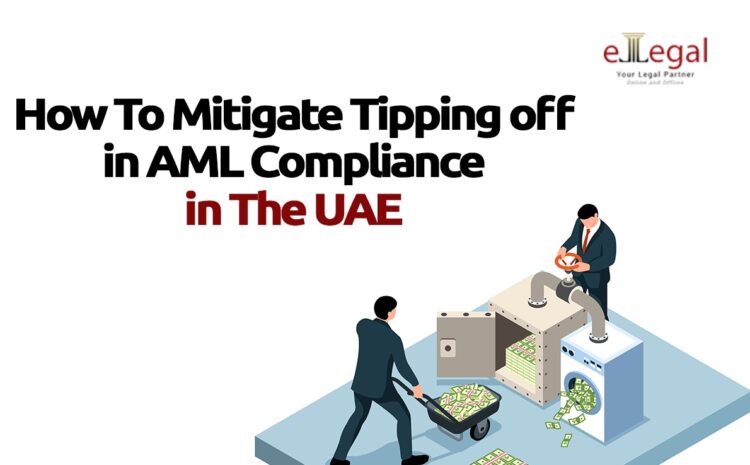
Understanding Tipping-Off
Tipping-off occurs when a person or entity is alerted to impending actions, investigations, or reports concerning them, thereby enabling evasion or interference with regulatory or enforcement processes. In AML/CFT contexts, this compromises the integrity of financial crime prevention systems.
Tipping-Off in UAE AML/CFT Compliance
Under AML regulations in the UAE, the Federal Decree-Law No. (20) of 2018 on Anti-Money Laundering and Combating the Financing of Terrorism (AML/CFT), Reporting Entities (financial institutions, DNFBPs, VASPs) must file Suspicious Transaction Reports (STRs) with the Financial Intelligence Unit (FIU) without delay. Critically, this obligation includes a dual confidentiality mandate:
- Content Confidentiality: STR details must not be disclosed to anyone outside authorized personnel (e.g., AML compliance officer, senior management).
- Reporting Confidentiality: The act of filing an STR must never be revealed to the subject customer or external parties.
Legal Definition under UAE Law
Tipping-off constitutes any breach of confidentiality that informs a customer directly or indirectly of an actual or impending STR, investigation, or regulatory action against them. Regulated Entities must ensure no employee, intentionally or inadvertently, discloses such information.
Consequences of Tipping-Off
Violations trigger severe penalties under UAE law:
- Fines ranging from AED 100,000 to AED 500,000;
- Minimum one-year imprisonment for responsible employees;
- Reputational damage, eroding client trust and entity credibility.
Mitigation Strategies for Regulated Entities
To balance STR obligations with tipping-off prevention, adopt these legally sound tactics:
Transactional Delays
Defer Transaction Processing: Temporarily suspend suspicious transactions pending FIU guidance. Avoid abrupt termination, which may alert the customer.
Leverage Internal Protocols: Cite “internal approval processes” or “compliance reviews” as reasons for delays never reference FIU engagement.
Operational Hurdles
Request Re-verification: Require additional KYC/CDD documents (e.g., updated IDs, source-of-wealth proofs) to create legitimate friction.
Invoke Technical/Procedural Delays: Attribute holdups to system issues, paperwork discrepancies, or fee renegotiations never imply regulatory scrutiny.
Relationship Management
Commercial Justifications: End relationships citing “business policy changes” or “commercial unviability,” avoiding reference to STRs.
Critical Do’s and Don’ts
Do’s
Embed STR confidentiality protocols in AML/CFT policies.
Restrict STR access to need-to-know personnel.
Use non-secure channels for STR related communications.
Don’ts
Disclose investigations or STR filings to customers
Discuss STRs beyond authorized teams.
Train frontline staff on tipping-off red flags.
Strengthening Internal Controls
- Policy Design: Codify tipping-off risks in AML/CFT frameworks, specifying approved delay tactics and communication restrictions.
- Access Governance: Implement password-protected digital repositories with audit trails for STR documentation.
- Third-Party Oversight: Ensure outsourced CDD providers adhere to identical confidentiality standards.
- Training & Accountability: Conduct mandatory staff training on confidentiality breaches. Award AML compliance certification after a successful training, and enforce penalties for violations via employment contracts.
- Data Privacy Balance: Share only FIU-mandated data, aligning with UAE data protection laws.
Conclusion
In the UAE’s stringent AML/CFT landscape, tipping-off is not merely a compliance failure, but rather it is a criminal offense. Robust internal controls, continuous staff training, and strategic transaction management are indispensable for mitigating risk. By institutionalizing confidentiality and leveraging lawful delay mechanisms, Regulated Entities uphold regulatory duties while safeguarding institutional integrity.
AML compliance in the UAE is not a matter that should be treated lightly, but rather taken seriously as the UAE government keeps creating regulations to ensure the emirate is not found wanting in the grey or black list. That is why we encourage all businesses in the UAE to enforce AML rules and regulations.
We are your one-stop shop for AML matters, ranging from carrying out KYC, CDD, EDD, to AML compliance software in the UAE. Contact us today for a free consultation.





